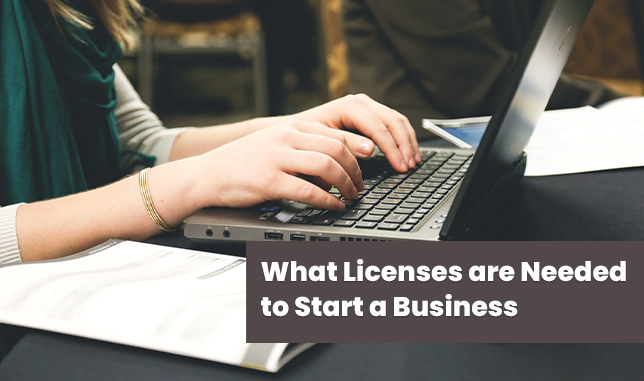What Licenses are Needed to Start a Business
Starting a business can be an exciting and rewarding venture. Whether you are an entrepreneur with a brilliant idea or someone who wants to turn their passion into a profitable venture, there are a few crucial steps you need to take before you can begin operations. One of the most important aspects to consider is obtaining the necessary licenses to legally operate your business. In this article, I will explore the various licenses required for different types of businesses and how to navigate through the process efficiently.
Read more article: Business Insurance for Pressure Washing
Understanding the Importance of Business Licenses
Before diving into the specifics, let's understand why business licenses are essential. Licenses are permits issued by governmental authorities that grant you the legal right to conduct your business in a particular location or jurisdiction. These licenses not only ensure that your business is compliant with local, state, and federal regulations but also safeguard the interests of the consumers and the public at large.
Types of Business Licenses
The licenses needed to start a business can vary significantly based on factors such as the type of business, its location, and the industry it operates in. Here are some common types of licenses that businesses often need:
1. General Business License
A general business license is a basic requirement for nearly all types of businesses. It grants you the authorization to operate within a specific city or county. The application process and associated fees can differ from one location to another.
2. Professional and Occupational Licenses
Certain businesses, particularly those in regulated professions such as healthcare, legal services, and construction, require professional or occupational licenses. These licenses ensure that individuals offering specialized services have the necessary qualifications and expertise.
3. Sales Tax Permit
If your business involves selling goods or services, you will likely need a sales tax permit. This permit allows you to collect and remit sales tax to the appropriate taxing authority.
4. Health and Safety Permits
Businesses involved in food service, hospitality, or childcare typically need health and safety permits. These permits ensure that the establishment meets specific health and safety standards.
5. Environmental Permits
Certain industries that produce waste or emissions may require environmental permits to ensure compliance with environmental regulations.
6. Building and Zoning Permits
If you plan to construct or renovate a physical location for your business, you'll need building and zoning permits to ensure that your property meets the local building codes and zoning regulations.
7. Home-Based Business Permits
If you intend to run your business from home, you might need a home-based business permit. This permit ensures that your business activities are compatible with residential zoning laws.
8. Federal Licenses
In addition to local and state licenses, some businesses may require federal licenses to operate legally. For example, businesses involved in aviation, alcohol production, or firearms sales need federal permits.
The License Application Process
Obtaining the necessary licenses for your business may seem daunting, but with careful planning and organization, it can be a manageable process. Here are some steps to guide you through the license application process:
1. Research License Requirements
Start by researching the specific license requirements for your business at the local, state, and federal levels. Government websites and small business development centers can be valuable resources in this regard.
2. Create a Checklist
Make a comprehensive checklist of all the licenses you need, along with their respective application deadlines and fees. Having a clear roadmap will help you stay organized throughout the process.
3. Prepare Documentation
Gather all the necessary documents required for each license application. This may include identification, business plans, financial statements, and any other supporting materials.
4. Submit Applications
Carefully fill out each license application, ensuring that all information is accurate and up-to-date. Submit the applications along with the required documentation within the specified timeframes.
5. Follow Up
After submitting your applications, be proactive in following up with the relevant authorities to track the progress of your license approvals. Be prepared to address any additional requests for information or clarifications.
6. Renewal and Compliance
Once your licenses are granted, ensure you adhere to all renewal requirements to keep your business in good standing. Additionally, stay informed about any changes in regulations to maintain compliance with the law.
Conclusion
Acquiring the necessary licenses to start a business is a critical step in establishing a legal and successful venture. It not only ensures your business's legitimacy but also demonstrates your commitment to operating within the bounds of the law and providing quality products or services to your customers. By understanding the different types of licenses and following a systematic application process, you can confidently launch your business and embark on a path to success.
Remember, every business is unique, so it's essential to conduct thorough research and consult with legal and regulatory experts when necessary. So, if you're ready to turn your entrepreneurial dreams into reality, start by identifying the licenses you need, prepare diligently, and take the leap towards building a thriving business.
Read more article: Automatic Car Wash Franchises

